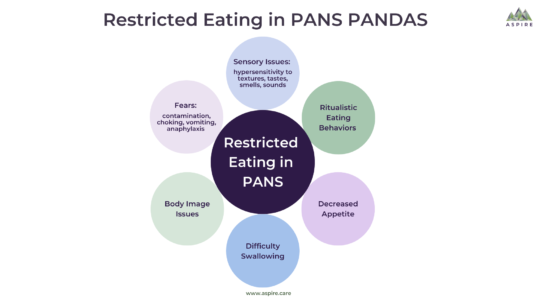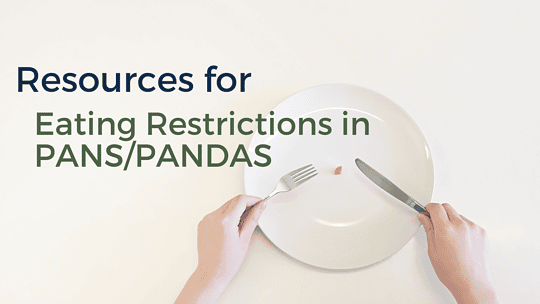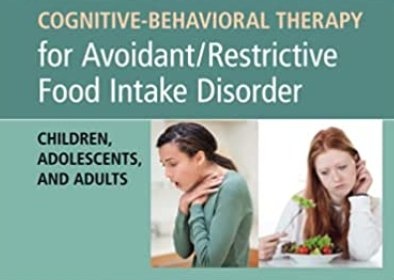
PANS & Eating Disorder/Food Restrictions & Toolkits/Handouts
PANS PANDAS & Eating Disorders/Food Restrictions – Full Packet of Recent studies and Flyer. Please note that the Flyer is also available in two poster sizes...

PANS PANDAS & Eating Disorders/Food Restrictions – Full Packet of Recent studies and Flyer. Please note that the Flyer is also available in two poster sizes...

Restricted eating, including Avoidant/Restrictive Food Intake Disorder (ARFID), is a common yet complex challenge for individuals with PANS/PANDAS. Families and patients often struggle to find...

PANS & Eating Restrictions This section on Restrictive Eatings at School is part of a larger section on Restrictive Eating seen in PANS PANDAS. Make sure to read the entire...

by Gillian Harris, Elizabeth Shea Many children with Autism Spectrum Disorder (ASD) have a restricted dietary range, and this book provides parents with advice and training on how to deal...

by Jennifer J. Thomas Avoidant/restrictive food intake disorder (ARFID) is a common eating disorder diagnosis that describes children and adults who cannot meet their nutritional needs, typically...

by Rachel Bryant-Waugh ARFID Avoidant Restrictive Food Intake Disorder: A Guide for Parents and Carers is an accessible summary of a relatively recent diagnostic term. People with ARFID may show...
Conclusions: The interactions between EDs and autoimmune diseases support the previously reported associations. The bidirectional risk pattern observed in women suggests either a shared mechanism or a third mediating variable contributing to the association of these illnesses.

Results of the population-based study, published in JAMA Psychiatry, found that infections that required hospitalization or treatment with anti-infective medications, such as antibiotics, antifungals...
In a Danish population-based cohort study of 525 643 adolescent girls, a prior infection in childhood was associated with an increased risk of later anorexia nervosa, bulimia nervosa, and eating disorder not otherwise specified.
The findings suggest that hospital-treated infections and less severe infections treated with anti-infective agents are associated with increased risk of subsequent anorexia nervosa, bulimia nervosa, and eating disorders not otherwise specified and that future studies should investigate whether these associations are causal and identify the exact mechanisms between infections and subsequent inflammatory processes with eating disorders.